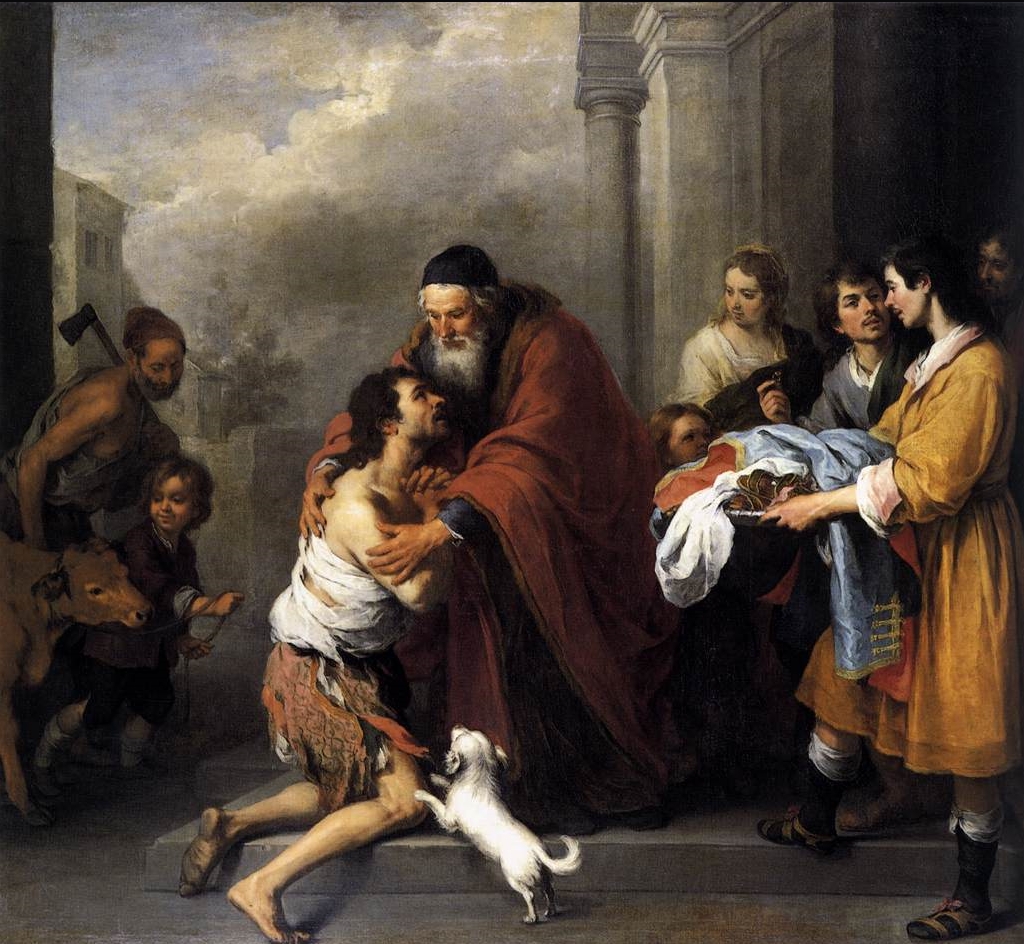Jesus said to him, “Have you believed because
you have seen me? Blessed are those who have not seen and yet have come to believe.”
(John 20:29)
Belief and doubt seem to be the theme of
this week’s lessons in the Revised Common Lectionary. The First Lesson (Acts 5:27-32)
tells the story of a pretty darn gutsy Simon Peter defiantly and courageously
breaking the law by preaching about the resurrected Jesus. Juxtapose this with
the fraidy-cat disciples cowering in a locked house and the doubting of Thomas
depicted in the gospel lesson. How cool would it be if all of us had the
energized zeal we see in Peter in that lesson from Acts? But, alas, if we’re
going to identify with anybody in these lessons, it’s probably going to be poor
old Thomas.
This poor guy gets a pretty bad wrap.
Anybody who questions anything now gets called a “Doubting Thomas,” but I’m not
sure he deserves the opprobrium we’ve dumped on him over the years. I mean, isn’t
a healthy amount of skepticism actually a
good thing at times? (Especially with all the crap that’s getting spewed
during America’s political season!)
I’ve always seen Thomas as being the
realist, but not really the pessimist. Back in chapter 11 he encourages his
fellow disciples to journey with Jesus into Judea where the natives are
definitely hostile and wouldn’t mind stoning Jesus and his followers to death
if given a good opportunity to do so. Thomas knows going there is a bad idea,
but he must believe something about
Jesus if he’s willing to die with him.
Don’t you find it kind of encouraging that
Thomas does not desert the movement after Jesus is crucified? Okay, so he wasn’t
at roll-call when Jesus first appeared to the disciples in 20:19, but a week
later (v. 26) he was right back with the boys. Still, even the testimony of his
friends can’t quite get him over the hump of his doubts about the resurrection.
Personally, I think this guy is just like us—he really in his heart wants to believe this, but he just needs
some empirical verification to seal the deal.
Now admit it: don’t you ever feel just
like him? Wouldn’t you like a little bit of unimpeachable evidence to bolster
your belief in the resurrected Jesus? (And are you ever disappointed with me
that I can’t give it to you?)
Maybe this is a scary question. Dietrich
Bonhoeffer spoke of “cheap grace,” but I wonder if we don’t often settle for “bargain
basement theology.” That is, we were told in Sunday School that Jesus was
resurrected and that believing this was the ticket to eternal life. So, as
impossible as this sounds, we say “okay” to it, file it way in our brains under
“dogma,” and then just never think about it too much for fear our contemplation
might lead us to doubt.
But here’s the cool thing: that fear of
doubt might actually be our true faith at work. Like doubting Thomas, we can’t
bring ourselves to desert the movement. There’s something in our faith tradition
for which we hunger. In a place in our hearts only explicable by the Holy
Spirit we really want to believe. We
yearn to believe, and, I think, this yearning is God at work.
Of course, the next question might be why?
Why do we want to believe so desperately? Maybe we just have a tribal need to
hold onto our culture and not discard the faith of our ancestors. But I would
hope that our hunger has a deeper cause. We hunger for Jesus. We hunger for his
unconditional love, for his merciful forgiveness, and for his promise of
eternal life.
The great Christian apologist C. S. Lewis
suggests this theory about our spiritual yearning:
A man’s physical hunger does not prove that man will
get any bread; he may die of starvation on a raft in the Atlantic. But surely a
man’s hunger does prove that he comes of a race which repairs its body eating
and inhabits a world where eatable substances exist. In the same way, though I
do not believe (I wish I did) that my desire for paradise proves that I will
enjoy it, I think it a pretty good indication that such a thing exists and that
some men will. A man may love a woman and not win her; but it would be very odd
if the phenomenon called “falling in love” occurred in a sexless world. (C.S. Lewis “The
Weight of Glory”)
I think Lewis makes a very good point. The
fear of our doubt is the result of our yearning for faith. That yearning itself
might be the indication that the thing for which we yearn is something which we
already believe. This yearning—unsatisfying
as it may feel to our rational minds—is already evidence of our existing
relationship with Jesus.
I pray we would learn to treasure and love
our hunger until the inevitable day when it will be satisfied.

